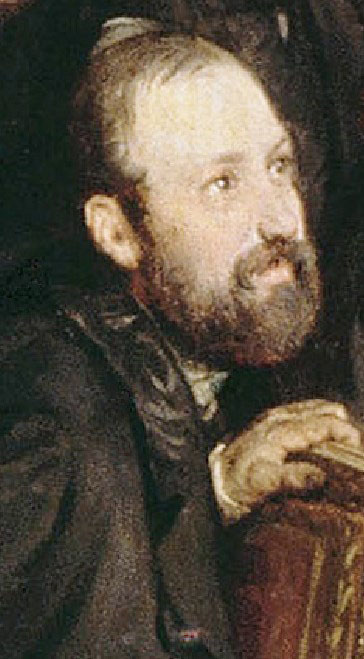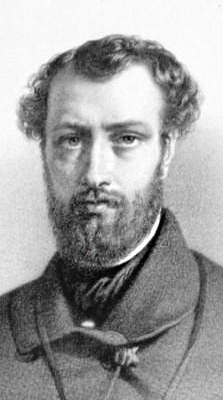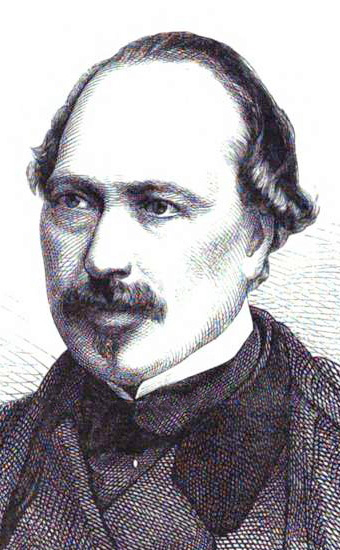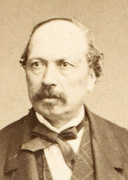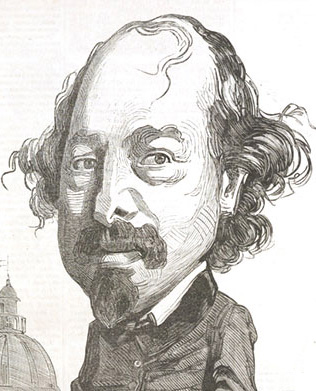Francois Ponsard (1814 – 1867), poet, dramatist
1st image: Soirée; 2nd: by Lehmann (1840); 3rd: by Neumann (before Legion d'Honneur, c.1853); 4th: Cremière (c.1860); 5th: caricature by Carjat (1857). (Alternative: Gounod)
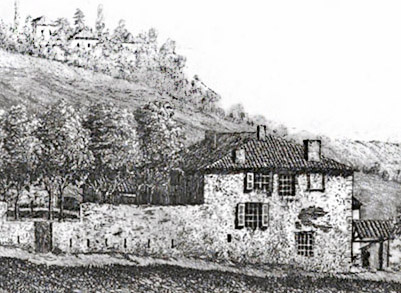
In 1843, Charles Reynoud, a young poet from Vienne, approached the director of the Odéon Theatre in Paris, claiming to have a masterpiece tragedy by his best friend. Lacking the manuscript, he recited the play from memory. Impressed by its brilliance, “pure Racine,” the director only smiled when Reynoud revealed the author was a lawyer from provincial Vienne.
During rehearsals, he joked about this mythical lawyer. One evening he said: “This pseudonym of Ponsard, do you still care about it?" They only learned his identity when the shy Ponsard finally appeared. Ponsard had written Lucrèce inspired by tragedy star Rachel Félix'81 emerging fame. The tragedy, reminiscent of Corneille’s grandeur, premiered on April 22, 1843, to instant acclaim. Audiences, weary of Victor Hugo’s moralizing plays (his Les Burgraves had failed a month earlier) embraced the play enthusiastically. King Louis-Philippe invited Ponsard to dinner.
Ponsard formed close friendships with Reynoud, writers Augier53 and Janin, journalist-publisher Lévy, and actress Rachel. The group, known for dining at Café Riche and traveling together, often intertwined romantically with Rachel. Ponsard’s affair with 'Rachellina' spanned summers in Italy from 1845 to 1846. She agreed to lead in Lucrèce’ reprise in 1848, with even greater success. In 1850 and 1851, she starred in his comedy Horace et Lydia.
In 1852,
Ponsard collaborated with Gounod70b on the tragedy Ulysse, for which Gounod composed choral sections. The lavish production, attended by Louis-Napoleon and notable figures such as Baroche61, Fortoul46, and Magnan67, impressed audiences despite the play’s literary weaknesses.
Afterward, Ponsard retreated to Spa with his friends, indulging in his trente-et-un gambling habit.
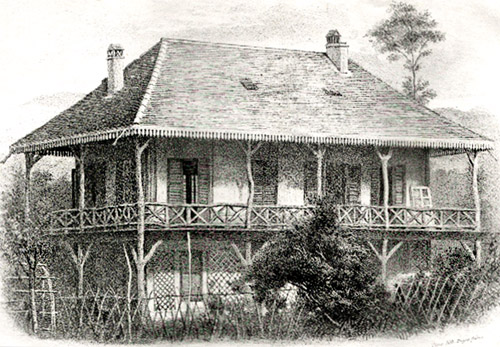
Encouraged by Countess Marie d’Agoult, Ponsard turned to comedy. Working from the chalet in Aix-les-Bains of his muse, poetry-lover princess Marie de Solms, he completed L’Honneur et l’Argent. Premiering on March 16, 1853, it became a triumph, performed 95 times consecutively. The public loved the allusions and epigrams in the poet's eulogy to honesty and justice, and his eloquent arguments against the victories of power over right, of money over conscience.
A plausible time for Ponsard's attendance at de Nieuwerkerke's16 vendredi-soirée is April 15, 1853 —shortly after L’Honneur et l’Argent’s premiere and Ponsard’s receipt of the Legion of Honor Officer title. He may have joined his friend Augier, who was having success with Philibert, or he may have attended together with Rachel. There are no caricatures by Giraud11. The soirée marked the last of that year, canceled thereafter due to de Nieuwerkerke’s mother’s illness. Given the lack of evidence of Ponsard's attendance and the lesser facial match, the alternative is his friend Charles Gounod70b.
That Spring, Ponsard vacationed in Spa with Rachel, maintaining his male friendships despite their shared romantic history with her. There, he squandered most of the 75,000 francs he earned from the play on gambling. That summer, his best friend Charles Reynoud died, while he was at Aix-les-Bains with the princess de Solms (a Bonaparte family member).
In October 1853, Rachel embarked on a Russian tour, partially funded by Minister Fould17 to appease Emperor Napoleon III, who sought to distance his former mistress. Rachel’s intricate situation with the emperor (and many others) likely caused de Nieuwerkerke to demand a redesign of Une Soirée au Louvre in 1854, eliminating her image.
Ponsard channeled his grief into La Bourse (1856), surpassing the success of L’Honneur et l’Argent. Working from Aix with princess de Solms, his affair with Rachel deteriorated. Their final meeting occurred in Vienne after her return from Egypt in 1857; Rachel died in January 1858.
Perpetual bachelor and ladies’ man Ponsard wrote three more moderately successful plays and married to Marie Pauline Dormoy (25 years his junior) in 1863 and moved to his hometown Vienne. By then, his health had already declined. Concealed to him by his wife and friends, stomach cancer slowly consumed him. Prolonged arsenic treatments caused more harm than good, and he endured three agonizing years. Nurtured in Janin’s chalet in Passy during his final months, Ponsard passed away in 1867.
Posthumously, a bronze monument honoring him was erected in Vienne in 1870, only to be seized and melted by the Nazis during WWII. It was replaced by a stone statue in 1950.
